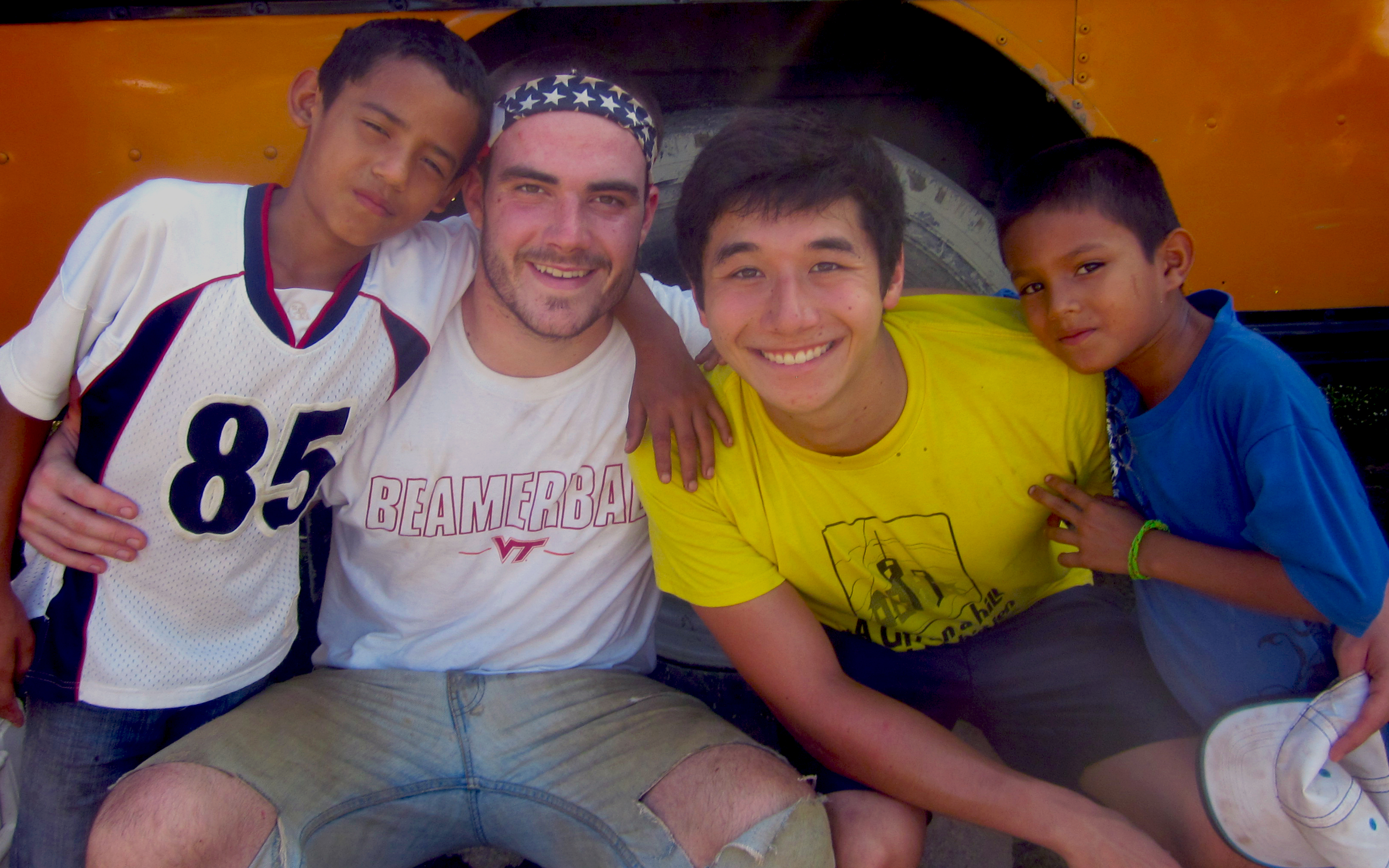Students help children in Honduras

For a group of 35 Virginia Tech students, 2013 began with hot sun, heavy manual labor, and lots of love. The students, who represented majors from across the university, took part in a week-long service journey to Central America in January, a journey that changed many of their lives forever.
They were part of Students Helping Honduras, an international grass roots organization that helps build villages, schools, and orphanages in the poverty-stricken nation. The organization hosts nearly 1,000 volunteers from all over the world each year in Honduras, and high schools and universities have created SHH chapters to raise funds and help the organization reach its goal of building 1,000 schools in the country by the year 2020.
“You see pictures and videos of places in Central America, and you see that it’s not good living conditions, but you don’t get the full realization of how important these projects are until you’re down there and experience it in person,” said John Duffy from Chantilly, Va., a junior majoring in construction engineering in the College of Engineering.
“You realize how much you have and how much they don’t have,” said Mike Driscoll from Chesapeake, Va., a junior majoring in business information technology in the Pamplin College of Business and co-president of Virginia Tech’s Students Helping Honduras chapter. “It has really broadened my horizons.”
For many in the group, this was not their first sojourn to Honduras. In fact, several were able to see a completed school that they helped build on an earlier visit.
“Seeing the school actually completed and in use was such a feeling of satisfaction,” Driscoll said.
On this particular trip, students helped break ground on a school in the town of Eben Ezer just outside the village of El Progreso in northwest Honduras. Long days were spent digging trenches and pouring cement, often with American students working alongside native Hondurans.
“We learned from each other,” said Josh Enokida who is also from Chesapeake, a junior majoring in materials science and engineering in the College of Engineering and also co-president of the group.
Things like electricity and running water were, for the most part, unspeakable luxuries for the villagers.
“Their way of life was primitive by our standards, but everyone in the village was so happy and friendly,” Duffy said. He described the children’s excitement when they arrived and the almost instant bonds of friendship that formed over an impromptu game of soccer or piggy back rides.
Driscoll recalled one young child who showed him math equations using a stick as a writing implement in the dirt. “He was so excited about learning and ‘teaching’ me math,” he said. “That was one of the most touching moments for me.”
When the group visited a children’s home in the village of Villa Soleada, Duffy bought a handmade bracelet from a girl who was raising money for her village.
“I wear it every day to remind me of how fortunate I am and how important it is to help these children,” he said.
The SHH umbrella group organizes three service trips to Honduras each year. Duffy, Driscoll, and Enokida all said they planned to return.
“For me, the experience is all about getting away from everyday life to a place you never thought you would go,” Enokida said. “It extends Ut Prosim beyond our local community.”
“One of the most satisfying parts of the trip was the fact that even though the villages we help have no way of repaying us, we keep going back because of the hope that one day these educated children can pay it forward and help their own country ,” Duffy said. “Spreading Ut Prosim across the globe is one of the best experiences I have had as a Hokie.”
Dedicated to its motto, Ut Prosim (That I May Serve), Virginia Tech takes a hands-on, engaging approach to education, preparing scholars to be leaders in their fields and communities. As the commonwealth’s most comprehensive university and its leading research institution, Virginia Tech offers 240 undergraduate and graduate degree programs to more than 31,000 students and manages a research portfolio of $513 million. The university fulfills its land-grant mission of transforming knowledge to practice through technological leadership and by fueling economic growth and job creation locally, regionally, and across Virginia.




